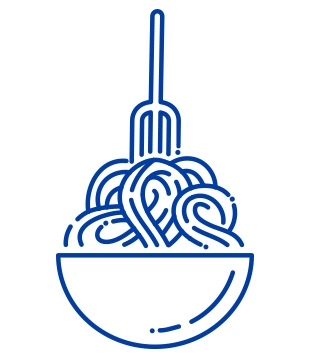
Best diet for a better night’s sleep
Inability to sleep affects many of us at some stage of our lives, but if tossing and turning or staring at the ceiling in the early hours is your nightly ritual, it might be time to look at what you are putting in your shopping trolley.
A new research review has found that our diet could have a big impact on how well we sleep at night.
A team of sleep and nutrition experts from the University of Chicago and Columbia, reviewed 45 years of research on diets and sleep quality to find out the secret to a better night’s sleep.
They revealed a restful slumber may come down to eating the right types of carbohydrates and fats.
Specifically, the science showed:

Intervention studies (a gold standard study) and observational studies showed improvements in a number of measures of sleep quality when people ate more carbs and good fats.



However, the review found very high protein diets were linked with a disrupted sleep and waking throughout the night.
So why does our diet affect the quality of our sleep?
While more research is needed, the authors of this review commented that plant-based diets helped the body produce more serotonin and melatonin – two hormones essential for sleep.
They also pointed to the gut-brain-axis, the link between the gut and the brain. Plenty of fibre and good fats are important for a healthy gut microbiome, as they help to nurture a wide variety of gut bacteria. Emerging research has linked a healthy gut microbiome with a longer, less disrupted sleep.
Aiming for a diet with plenty of plant foods and good fats, as well as less saturated fat and sugar, is a good starting point to help you feel better and sleep well too. A Mediterranean-style diet is an ideal starting point.
The overall takeout - a healthier diet is not only good for our general health, but may also make for a better night’s sleep.
Give your pantry a Mediterranean diet make-over. Here’s how.
Dietitian Trish Guy has some simple shopping swaps to help get your diet on track to support a better night’s sleep:
- Switch white bread for delicious grainy loaves.
- Grab a can of beans like four bean mix, kidney beans, cannellini or borlotti. They’re always a handy pantry staple that can help to bump up the fibre and protein of a meal. Here are some ideas.
- Make sure you have brekkie. Shop for a wholegrain or high-fibre cereal to start the day right with quality carbs. Taking 5 minutes for breakfast could also make it easier to give up your morning caffeine hit and stop mid-morning sugar cravings.
- Make the most of cheap avos for healthy fats, or grab a jar of peanut butter. It’s delicious with apple slices as a great afternoon snack – for you and the kids!
- Stick to canola oil or olive oil for cooking and avoid butter or coconut oil.
Also check out our Mediterranean recipe collection for inspiration and healthy meal planning before your next food shop.

The latest nutrition advice, plus health and wellness tips delivered to your inbox monthly
.png)

.png?width=856&height=290&format=png&quality=95)